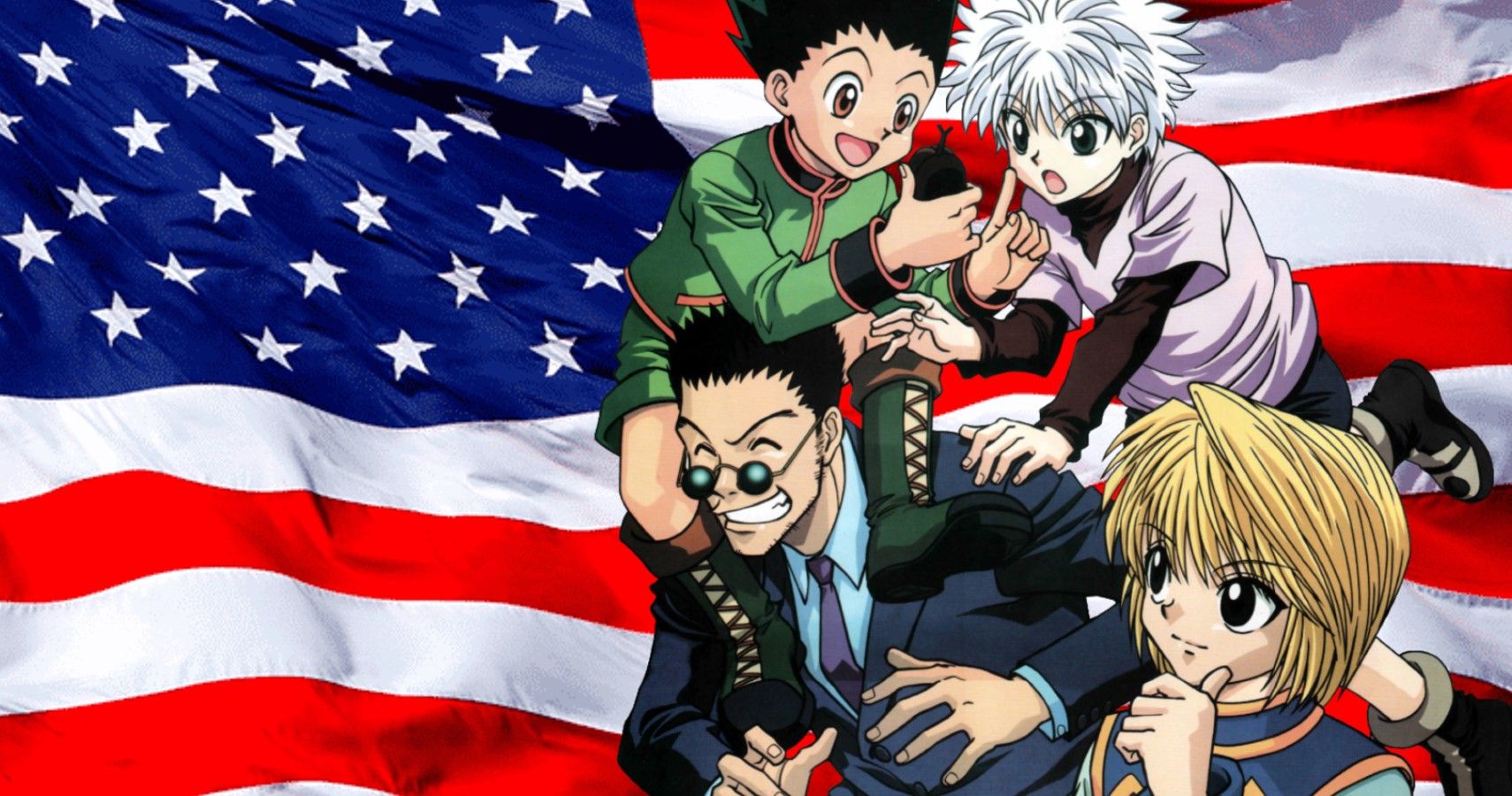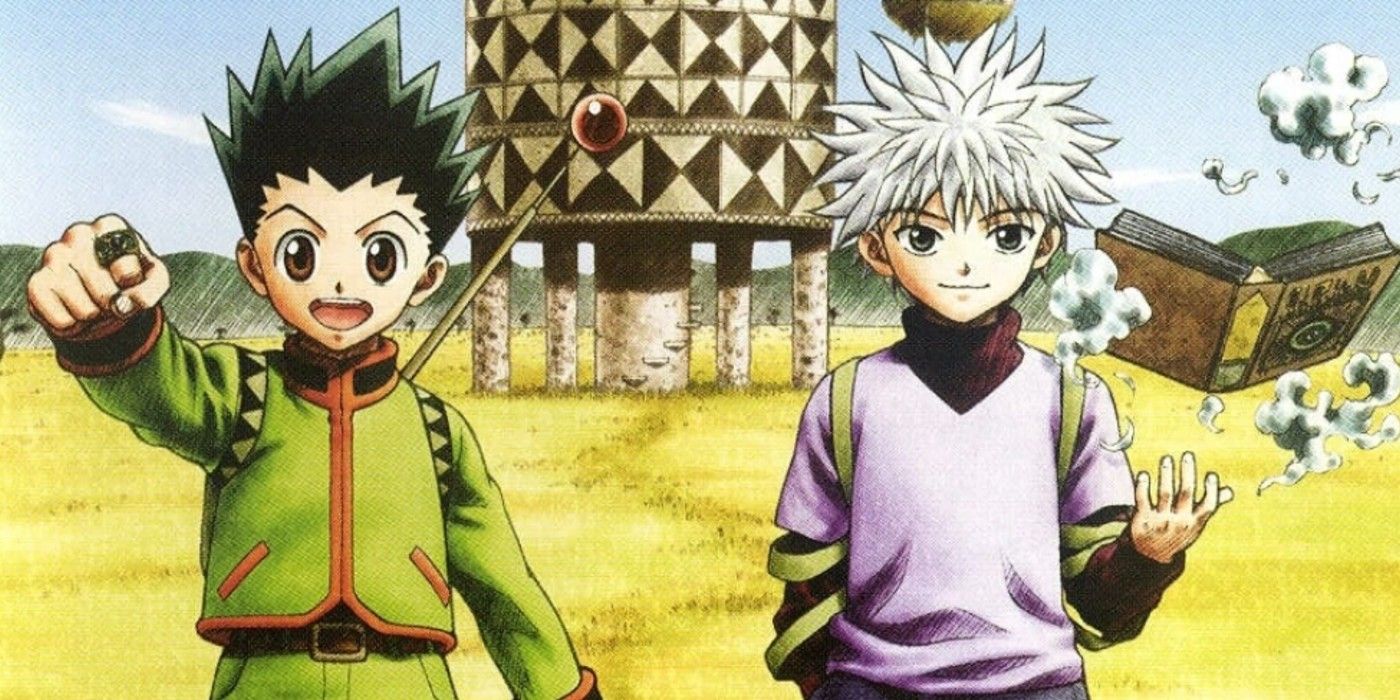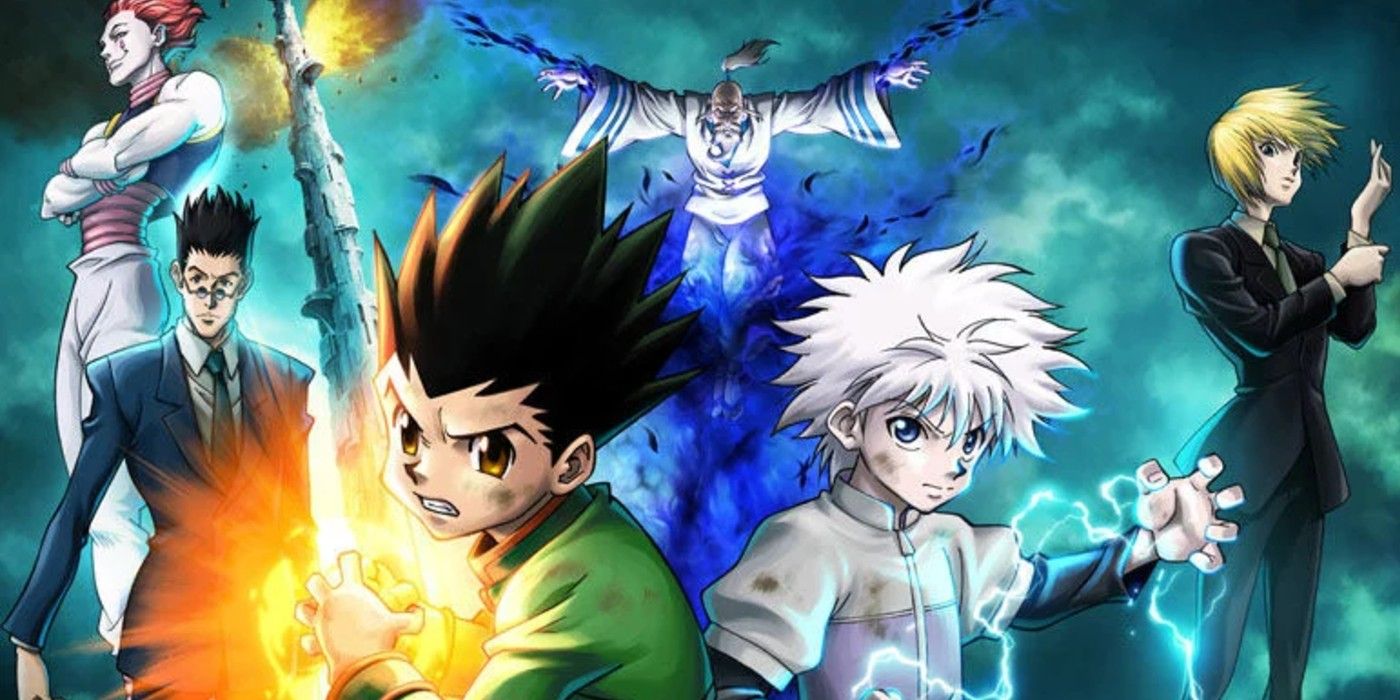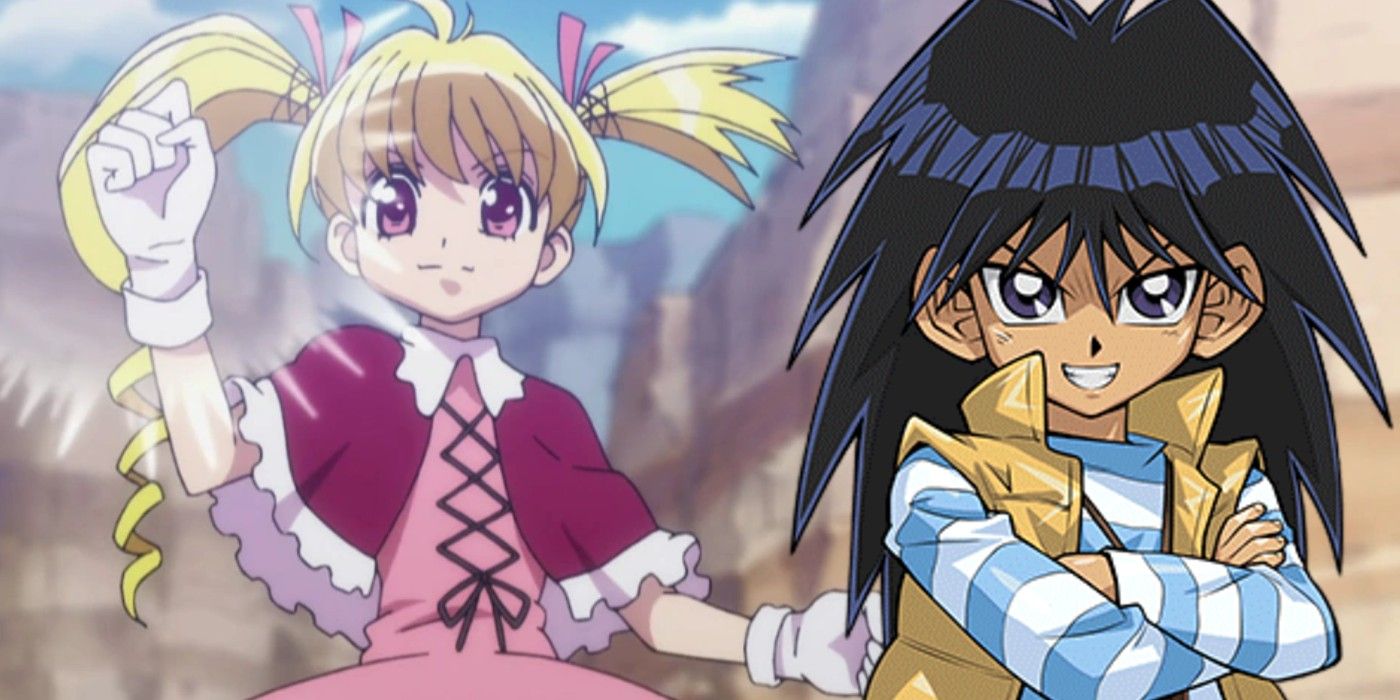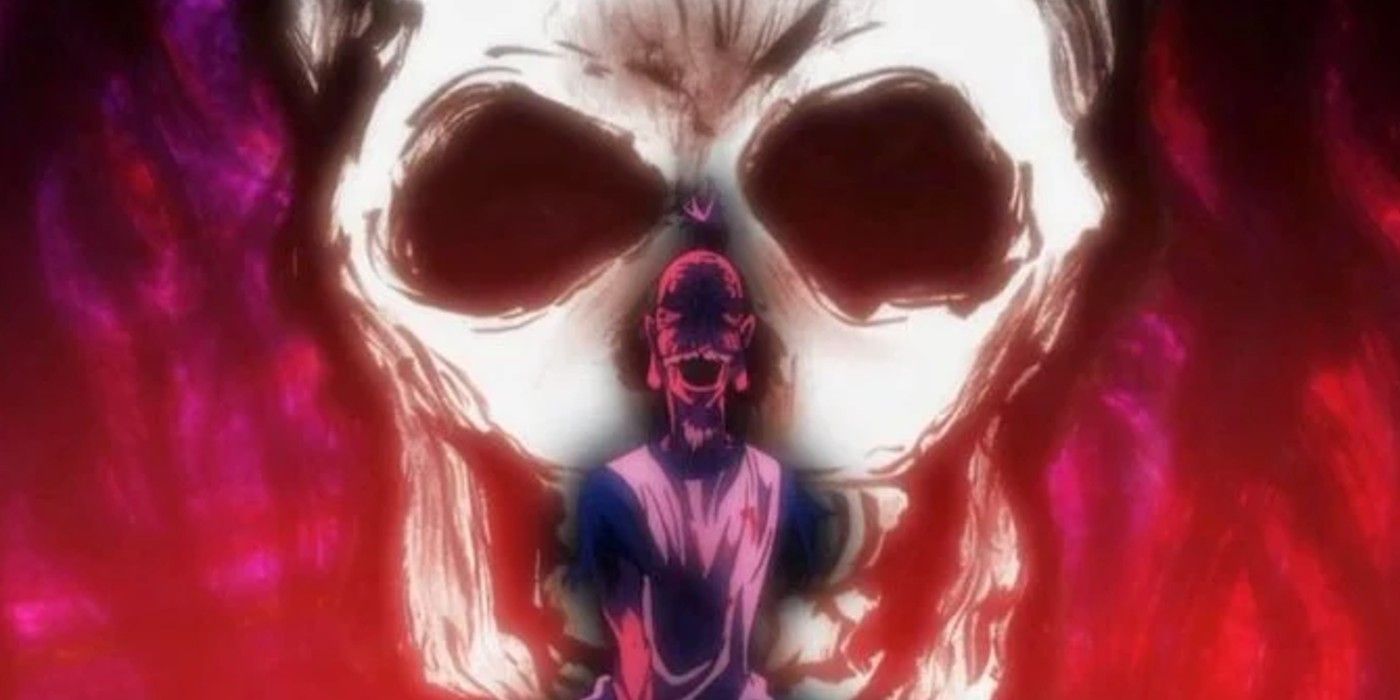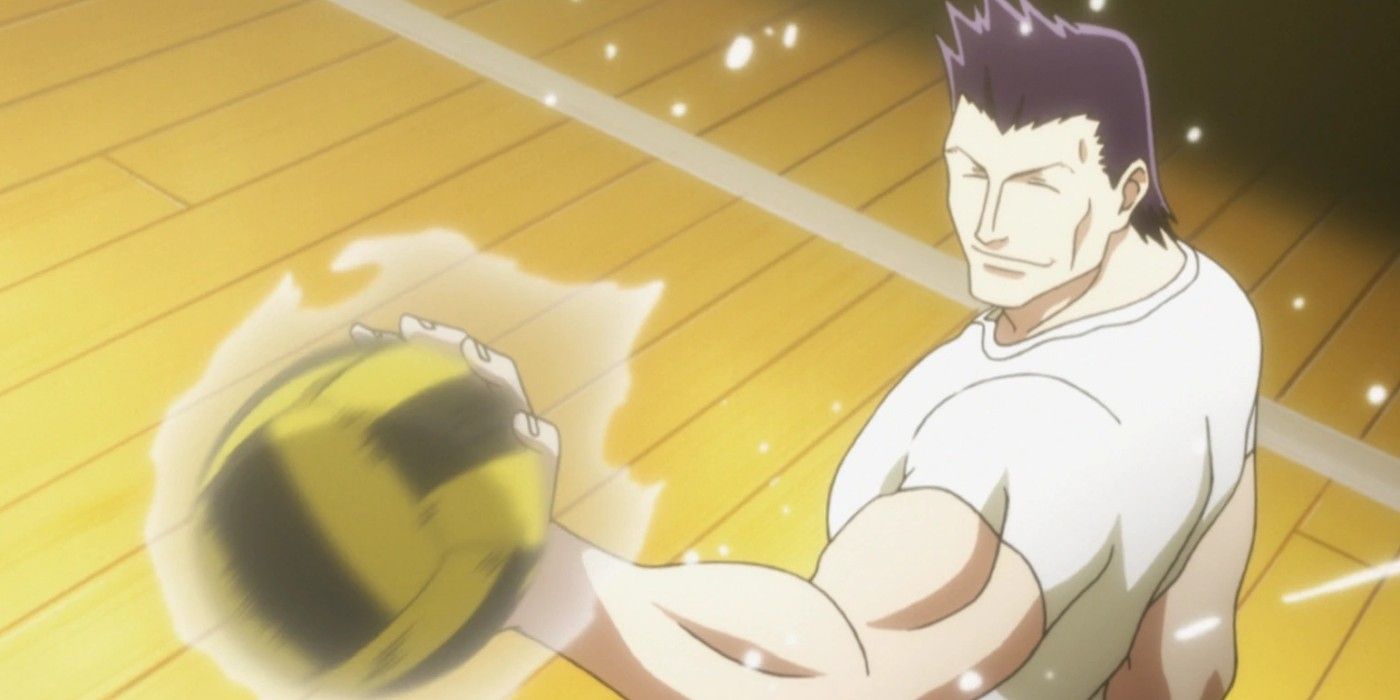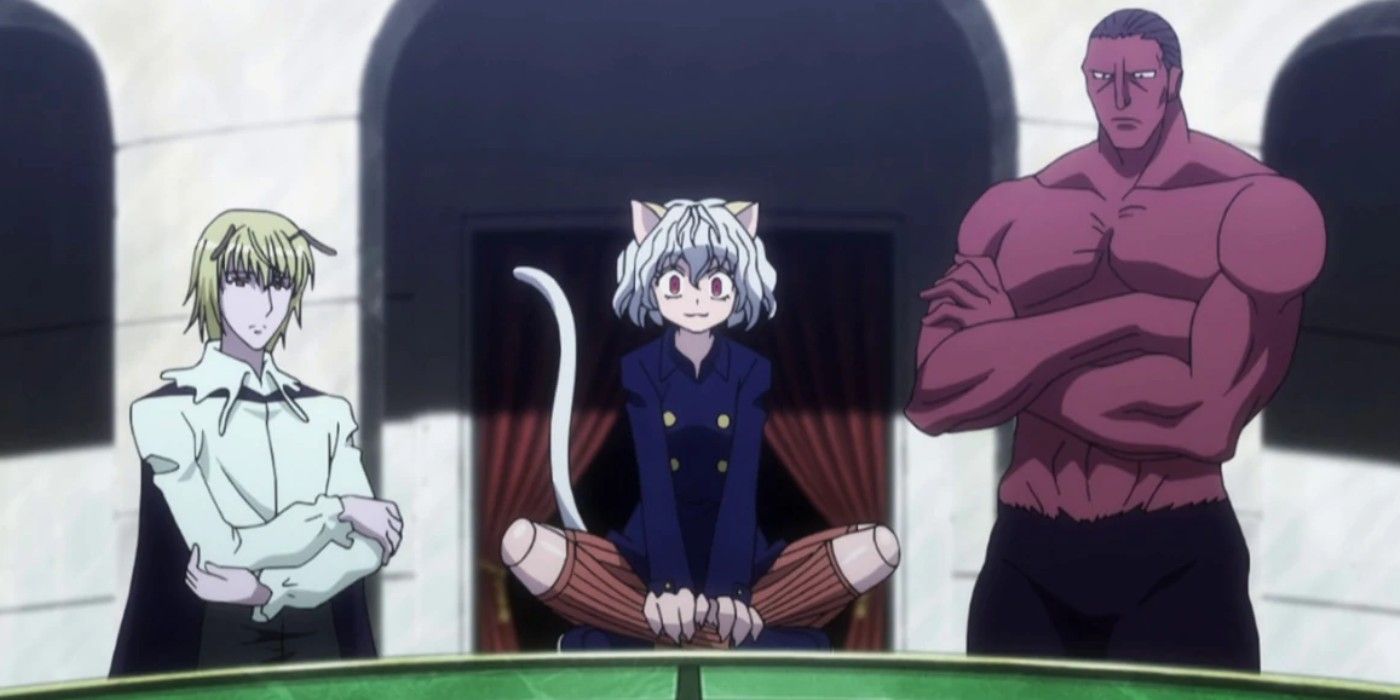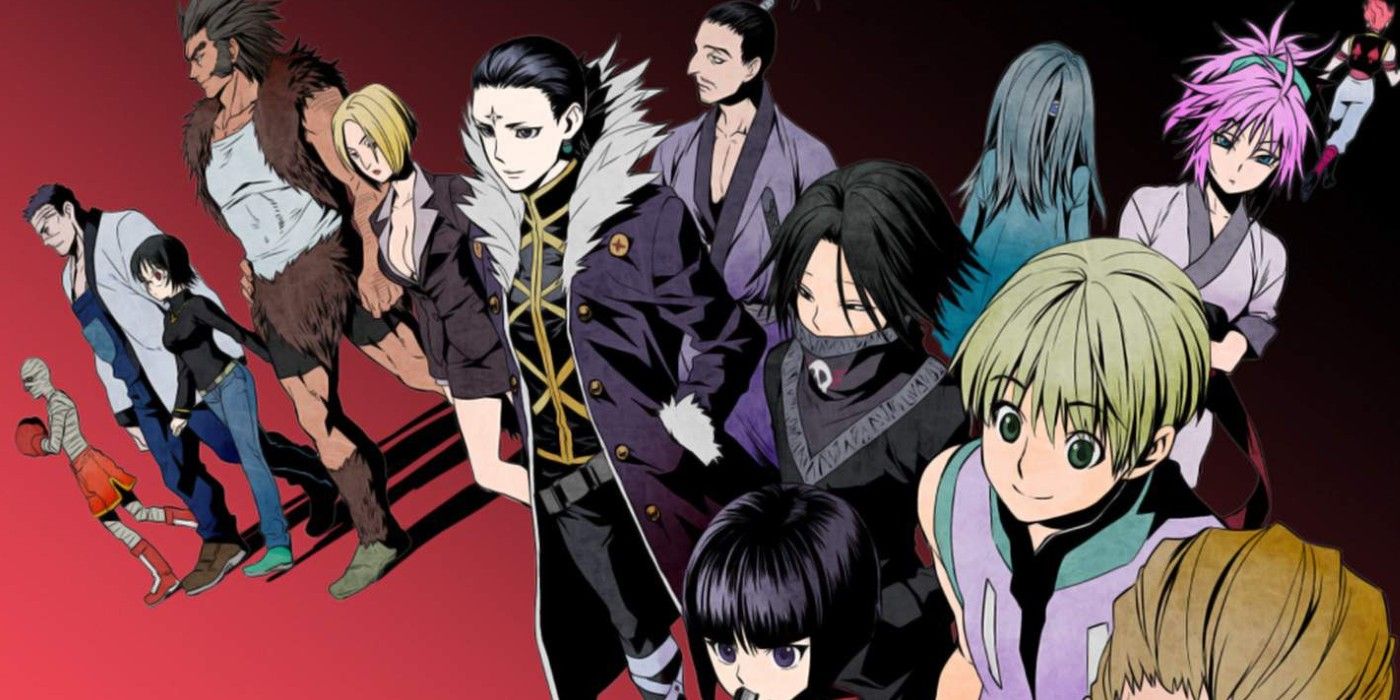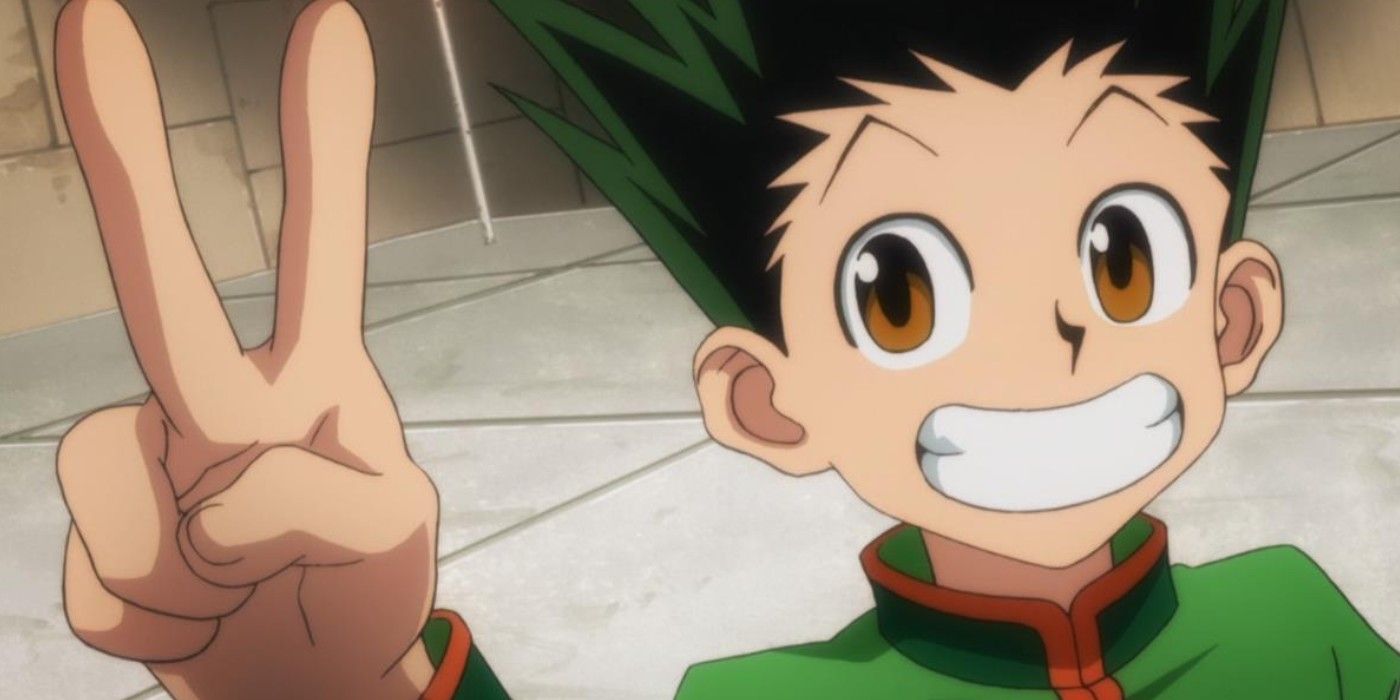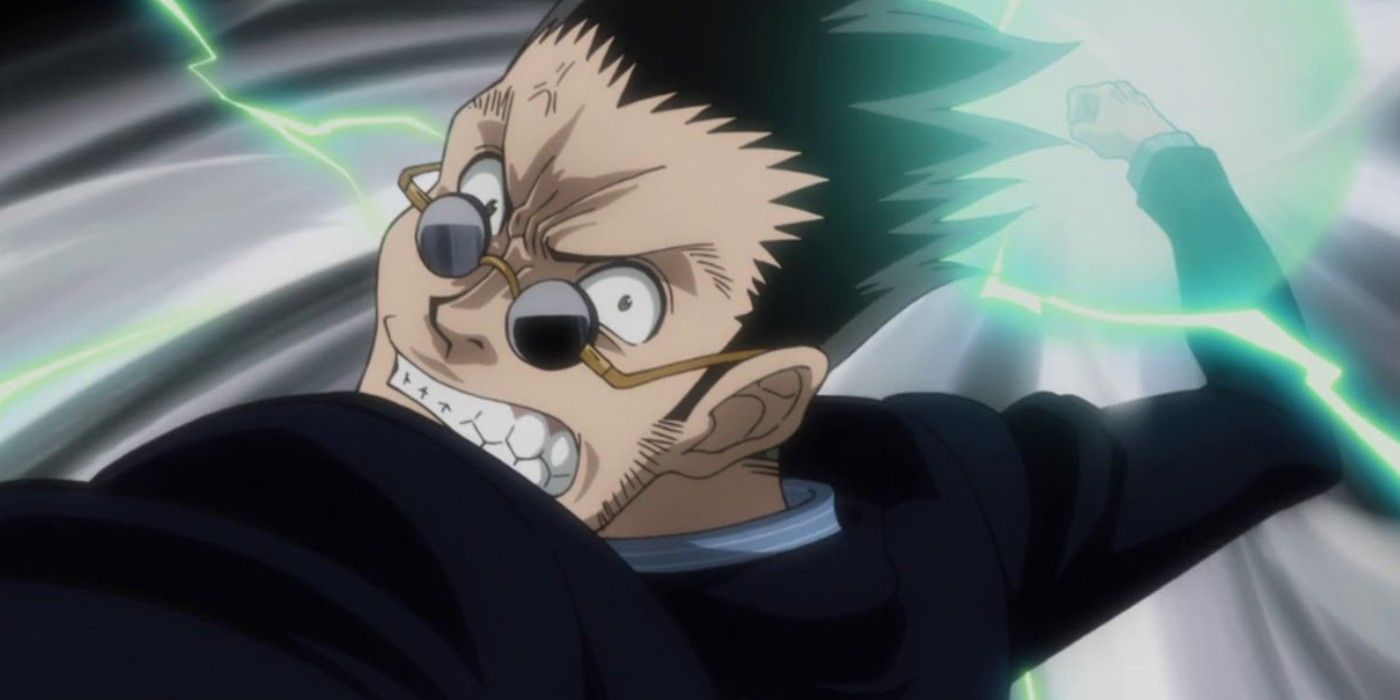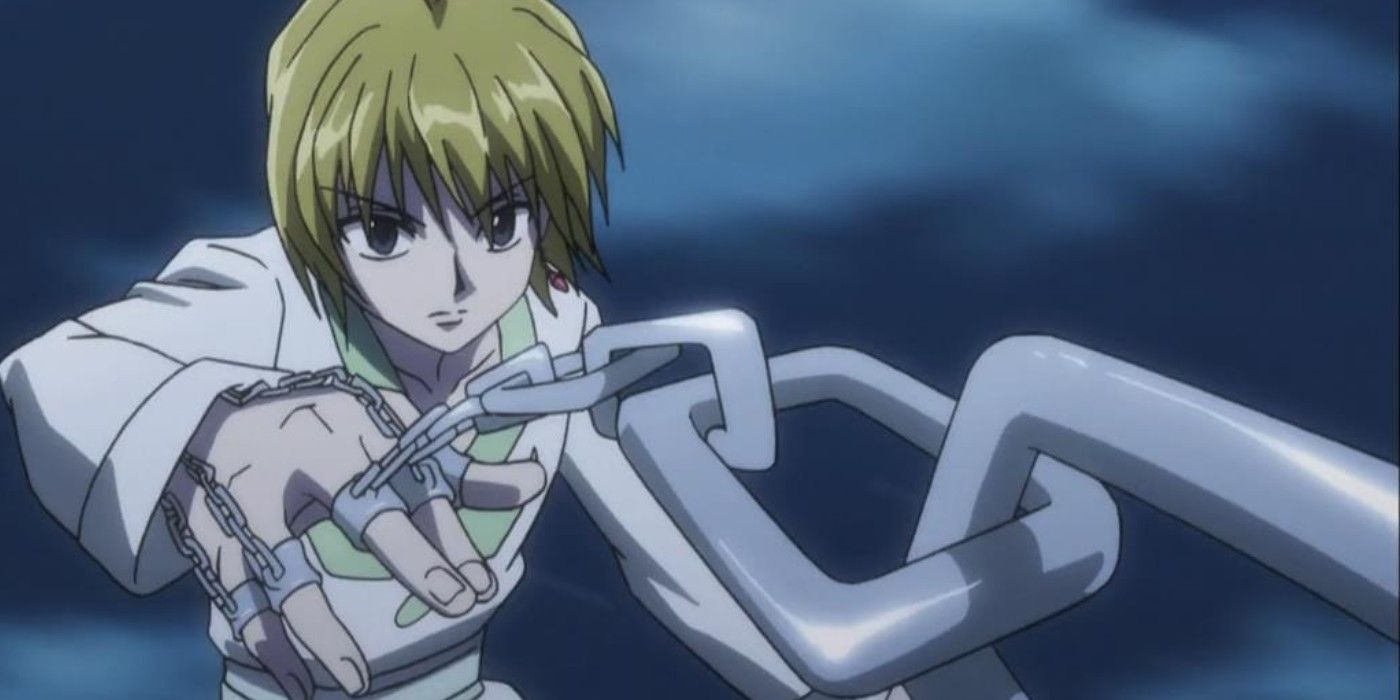For the most part, the English dub of Hunter X Hunter stayed as faithful as it could to its source material. However, this can only go so far since some things are better said in Japanese, or they actually can’t be said at all outside of Japan.
With two anime to its name (plus a movie and supplementary shorts), Hunter X Hunter did its best to stick to the manga and Japanese dub despite making some noticeable changes. None of these changes are bad or make the show worse necessarily, but they show how complex a process localizing anime can be.
10 The Original OVA Series Are Currently Unavailable
With just 62 episodes, the original Hunter X Hunter anime (1999-2001) lacked a proper ending and left fans underwhelmed. To address this, a series of original video animations (OVA) were made, adapting the rest of the Yorknew City arc in one OVA and the entirety of the Greed Island storyline in two OVAs. The problem is, they can only be watched in raw Japanese or via unauthorized fansubs.
VIZ Media saw no need to dub them since the new Hunter X Hunter anime (2011-2014) already adapted the covered arcs, rendering the OVAs unnecessary. Worsening matters is that the original series’ DVD sales were pretty bad, convincing producers to not keep it in circulation, so the DVDs are hard to get ahold of even for those who want them. They instead diverted their efforts and attention to the more successful 2011 reboot.
9 The Movie Makes English The Setting’s Official Language
While it bears many similarities to our reality, the world of Hunter X Hunter is an entirely fictional one. As such, each of the six continents in this setting have their own unique cultures, as seen in each character’s differing currencies, belief systems, and languages.
This was changed in Hunter X Hunter: The Last Mission, which unintentionally makes English the setting’s official language. Here, the televised news broadcasts and signs have their in-universe runic writings replaced with English translations. A slight mistranslation also declares Isaac Netero the “President of Hunter X Hunter” when, originally, he’s only the chairman of the Hunter Association.
8 There’s A Yu-Gi-Oh! Callback
During the Greed Island arc, Gon and Killua get trapped in a video game. To get out, they must beat the various challenges in the world, including a children’s card game. Biscuit Krueger teaches them how to play this game and in both the original Japanese and English dubs, there’s a Yu-Gi-Oh! Duel Monsters callback. The difference lies in who is specifically being paid homage to.
Biscuit’s original voice actress is Chiso Yokoyama, who appropriately voiced Noah Kaiba during Yu-Gi-Oh’s! very own isekai-styled event (i.e. the Virtual World arc). Meanwhile, Biscuit’s English voice actress is Tara Sands, who is most known for portraying Mokuba Kaiba. Coincidentally, Mokuba got kidnapped and turned into a literal plot device in Virtual World.
7 Netero’s Last Words Are More Threatening In English
At the end of the Chimera Ant arc, Netero dies after finally putting an end to the dangerous Meruem and the surviving Royal Guards. In his final moments, Netero tells Meruem that he doesn’t know anything about “humanity’s infinite potential for evolution” after the King of the Ants fatally underestimates humanity.
Where the original Japanese dialogue gave Netero a heroically defiant swan song, the English dub made him more terrifying. Here, Netero says that Meruem doesn’t know “the bottomless malice within the human heart,” implying that he’s been holding back this whole time and he’s about to show Meruem just how deadly humans really are when pushed to the brink.
6 Laser Is Really Razor
One of the Greed Island arc’s most well-known challenges involves a hardcore game of dodgeball, where the Game Master is an incredibly buff and cheery dude who can launch balls at sonic speeds. Originally, he was known as “Laser” but this was actually an error on the translators’ part.
As it turns out, each of the letters in “Greed Island” represents a certain Game Master, with R standing for Laser. Following this realization, Laser’s name was changed to Razor so he could properly fit the acronym. The original mistake probably stemmed from the localizers mishearing Razor’s name in the Japanese dub.
5 No One Knows How To Say The Chimera Royal Guards’ Names
For humorous reasons, Hunter X Hunter is infamous for how weirdly complicated some characters’ names are. This makes some sense since it’s set in a fictional world with its own language, but the naming conventions teeter between difficult and undecipherable.
One of the more well-known instances of this is the Chimera Royal Guard, comprised of Menthuthuyoupi, Neferpitou, and Shaiapouf. Not only is it hard for translators to get the pronunciations right, but writing them down is even harder. No two translations yield the same spelling, with the official Hunter X Hunter guide showing different names from VIZ Media’s interpretation. Both translations just stick to whichever their translators find easier.
4 Everyone Spells The Phantom Troupe’s Names Wrong
The original scripts and audio are important for localizing, with an easy solution for Romanizing names being to play it by ear. Simply put, some translators listen to the way a character’s name is said and write their closest approximation to it. This worked for the most part in Hunter X Hunter, save for literally everybody in the Phantom Troupe.
In the anime’s official guidebook, the correct spellings of the Phantom Troupe members’ names were revealed and they’re far from anything fans are used to. Some examples include: Curapikt (Kurapika), Hyskoa (Hisoka), and Quwrof Wrlccywrlir (Chrollo Lucifer). For simplicity’s sake, fans and translators stick to the initial and more familiar English translations.
3 Gon Freaks Vs. Gon Freeccs
Another side-effect of Hunter X Hunter’s unique writing system and naming conventions is how difficult it is to pin down Gon’s deceptively easy-to-pronounce surname. In English, Gon’s family name is Freaks, which gives him a fun youthful edge that wouldn’t feel out of place in a superhero comic book.
Meanwhile in Japanese, Gon’s last name is spelled as Freeccs, which sounds like just about every other name in the world of Hunter X Hunter. The two names read practically the same, though their spellings shows some interesting differences and divergences between American and Japanese sensibilities.
2 Leorio Becomes A Potty Mouth
Due to the limits of the Japanese language, the most offensive things anyone could say is something along the lines of “Go to hell!” or “Die!” In fact, the famous curse “Kuso!” translates to “Damn it!” at worst. These are harsh, almost explicit insults in Japan but to English speakers, they’re considered fairly tame and wouldn't even require a PG-13 rating if spoken in a movie. To address this, localization teams have fun by letting actors swear to their hearts’ content.
Leorio benefited from this the most and becomes hilariously crass in English. His most famous f-bomb occurred when he publicly called Ging– Gon’s father and strongest contender for worst anime dad– a “bastard” and yells “Die you a**hole!” after punching him into the stratosphere. Fittingly, the scene ended with thunderous applause from a jubilant crowd.
1 Kurapika Had Gender-Neutral Pronouns For The Longest Time
Thanks to his androgynous features plus being exclusively voiced by women, Kurapika’s gender has been something of a running mystery/joke among older fans. The matter was finally put to rest when Hunter X Hunter’s Philippine dub confirmed that Kurapika was male— but before this, creative workarounds were implemented.
English versions of Hunter X Hunter used gender neutral pronouns (they, them, etc.) when referring to Kurapika, leaving the possibility for a later edit open. This wasn’t problematic in any way, but it shows the interesting language differences between English and Japanese. Broadly speaking, Japanese doesn’t use gendered pronouns, so Kurapika’s gender was never an issue in the original dubs.

